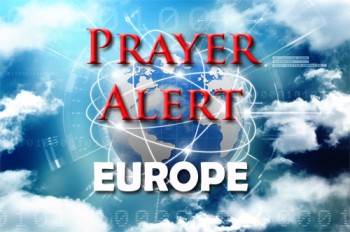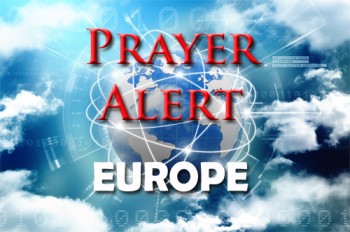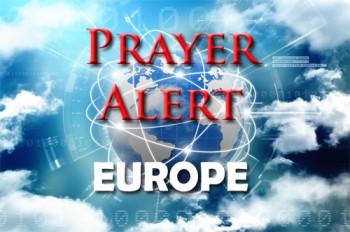Displaying items by tag: accusations
Syria: government tells Kurdish forces to leave Aleppo after deadly clashes
Syria’s army has moved reinforcements to areas east of Aleppo after ordering Kurdish forces to withdraw, following deadly clashes which have killed over 100 and displaced as many as 150,000. The Islamist-led government is seeking to reassert control nationwide, but efforts to integrate the Kurds’ autonomous administration and forces into the state have stalled, despite an agreement reached earlier this year. Kurdish-led forces deny building up troops and accuse the government of launching fresh attacks, while Damascus insists it is responding to provocation. Limited skirmishes and artillery fire have been reported, raising fears of a wider confrontation. In Qamishli, the main Kurdish city in the country's northeast, thousands of people demonstrated, accusing the government of breaking its promises and preparing a broader assault. With mistrust deepening, the situation remains volatile, threatening further suffering for civilians already exhausted by years of conflict. Christians in the region are asking for prayer: see
‘War against drugs’: USA confirms double strike on a suspect vessel
US military strikes on alleged Venezuelan drug boats are facing intense criticism after reports that a ‘double tap’ attack on 2 September killed survivors clinging to a burning vessel. The White House confirmed a second strike was ordered by Admiral Frank Bradley, saying it was lawful and authorised by defence secretary Pete Hegseth, though officials denied he instructed forces to ‘kill everybody’. More than eighty people have died in similar Caribbean operations since September, yet the USA has provided little hard evidence of drug trafficking. Lawmakers from both parties are demanding investigations, with some Democrats arguing the second strike might constitute a war crime if incapacitated survivors were deliberately targeted. The administration insists it is acting in self-defence against ‘narco-terrorist’ groups, while Venezuela has condemned the strikes as unlawful aggression.
I have never authorised attacks on ministers, says PM
Keir Starmer has firmly denied authorising anonymous briefings against members of his cabinet after reports suggested some aides believed he could face a leadership challenge from health secretary Wes Streeting. At PMQs, he called such attacks completely unacceptable, insisting he appointed his ministers because they are 'the best people to carry out their jobs’. Streeting, who missed PMQs to address an NHS conference, rejected claims he was plotting a leadership bid and criticised what he described as a 'toxic culture' inside No 10 - though he does not believe the prime minister is responsible. Kemi Badenoch accused Starmer of having 'lost control of his government’, while speculation persists within Labour about who might stand if a contest were triggered. Despite a large 2024 majority, Starmer’s leadership has faced turbulence; with the Budget and devolved elections looming, internal unity is being tested.
Tanzania: unprecedented level of protest after landslide presidential election
The recent election which saw president Samia Suluhu Hassan win with 98% of the vote has exposed deep cracks in Tanzania’s democratic foundations. The landslide result - achieved amid opposition arrests, media restrictions, and reports of violence - has drawn widespread criticism from observers and foreign governments. What followed was unprecedented in Tanzania’s history: mass youth-led protests erupting across major cities, demanding electoral justice and democratic reform. The unrest reflects a broader generational awakening in Africa, where frustration with corruption, repression, and economic inequality is driving young citizens to demand accountability. With around 77% of the population aged under 35, the country’s future hinges on how leaders respond to this rising tide of civic resistance. Despite the violence and censorship surrounding the protests, they reveal a powerful truth: citizens are no longer content with symbolic democracy. Tanzania’s youth are asserting their right to shape their nation’s destiny. Going forward, the demand for a new constitution should be the priority.
Gaza: ceasefire fragile after Israeli airstrikes kill 100+
On 29 October, Hamas reported that Israeli airstrikes in Gaza had resulted in at least 104 Palestinian deaths, including 46 children. Israel's defence minister accused Hamas of an attack in Gaza which killed an Israeli soldier, and of breaching the terms on returning deceased hostages' bodies. Although Hamas denied involvement in the attack, asserting its commitment to the ceasefire, the IDF said it had targeted what it described as ‘terror targets and terrorists’, killing numerous individuals, including thirty armed group commanders. The strikes caused significant destruction, hitting homes, schools, and residential blocks: each side has accused the other of ceasefire violations. Despite the violence, Donald Trump downplayed the likelihood of renewed hostilities, supporting Israel's right to retaliate. The conflict shows the fragile nature of the ceasefire and the ongoing volatility in the region – which has also been highlighted by the call by Amnesty International to investigate whether a US airstrike on Yemen in April was a war crime. See
Poland / Ukraine: agreement on exhumation of WW2 massacre victims
Tensions between Poland and Ukraine have been strained for years over the Volhynia Massacre, in which Ukrainian paramilitary forces killed around 100,000 Polish civilians during World War 2. Polish prime minister Donald Tusk has now announced that exhumations of the bodies will begin, thanks to cooperation between Poland and Ukraine’s cultural ministries. While Poland describes the massacre as genocide, Ukraine disputes this, viewing it as part of a broader conflict. The dispute intensified after Ukraine banned the search for Polish victims in 2017, but recent efforts, including a joint commemoration by presidents Duda and Zelensky, aim to heal wounds. Meanwhile, Tusk has accused Russia of plotting terrorist acts against Western airlines : see
Azerbaijan: Putin urged to accept responsibility for air crash
President Ilham Aliyev has urged Russia to accept responsibility for the Christmas Day crash of an Azerbaijan Airlines plane, which killed 38 of the 67 onboard. The flight, from Baku to Grozny, was diverted from Chechnya and crashed in Kazakhstan. Vladimir Putin has apologised but stopped short of admitting fault, attributing the tragedy to Russian defences countering Ukrainian drone attacks. Aliyev criticised initial Russian explanations, including claims of a gas cylinder explosion and bird strikes, as ‘foolish and dishonest’. He acknowledged the incident was accidental but demanded that Russia admit guilt, punish those responsible, and provide compensation: he commented, ‘No one would have thought that in a friendly country, our plane would be fired at from the ground’. The crew members were honoured for landing the plane in a way that allowed 29 people to survive, even though it led to their own deaths.
Nagorno-Karabakh: ICJ will hear cases from both sides
The International Court of Justice (ICJ) has confirmed that it has jurisdiction to hear cases filed by Armenia and Azerbaijan, two long-standing adversaries. The cases stem from the 2020 Nagorno-Karabakh conflict, with both nations accusing each other of violating the international convention on racial discrimination. Armenia accuses Azerbaijan of engaging in ‘ethnic cleansing’, while Azerbaijan claims Armenia has spread hate speech and racist propaganda. The ICJ had previously issued emergency orders to prevent the incitement of racial hatred and protect ethnic Armenians fleeing Nagorno-Karabakh after Azerbaijan’s military actions in 2023. While the court’s rulings are binding, it lacks enforcement power. The cases are still in the early stages, with the court narrowing the scope of certain claims and excluding others. The process could take years to resolve, as both nations await the next hearings and a final ruling on the merits of their claims.
USA: former government aide accused of espionage
Linda Sun, a former senior aide to two New York governors, has been charged with acting as a secret agent for the Chinese government. She and her husband face multiple charges including visa fraud, alien smuggling, and money laundering. Both have pleaded not guilty and are out on bail. Sun allegedly used her political position to further Chinese interests, blocking Taiwanese representatives from meetings and altering official messaging to favour China, especially during the Covid pandemic. She ensured public praise for China’s ventilator shipments while blocking an effort by Taiwan to get a public acknowledgement for giving masks. Authorities claim she facilitated millions in business deals for her husband’s Chinese-connected company, which funded their luxurious lifestyle. China’s embassy dismissed the charges, pointing out that previous cases against alleged Chinese agents have collapsed. There are growing tensions between the two countries over espionage claims.
Mali cuts ties with Ukraine after rebel attack
Ukraine has criticised Mali's decision to sever diplomatic ties, calling it short-sighted and hasty. This decision followed comments from Ukraine's military spy agency about the recent clashes in northern Mali, where Tuareg rebels claimed responsibility for killing 84 Russian Wagner mercenaries and 47 Malian soldiers. This was Wagner's most significant defeat since assisting Mali's military against insurgent groups two years ago. Ukraine denied involvement, stating no evidence was provided. After the spy agency mentioned that rebels had received ‘necessary’ information for the attack, Mali interpreted this as an admission of Ukraine's involvement, condemning it as a violation of sovereignty and support for terrorism. Senegal summoned Ukraine’s ambassador over related accusations. These events occur amid deteriorating relations between the West and Sahel nations, which have expelled French and US forces and turned to Russian mercenaries for security following recent military coups in Mali, Burkina Faso, and Niger.









